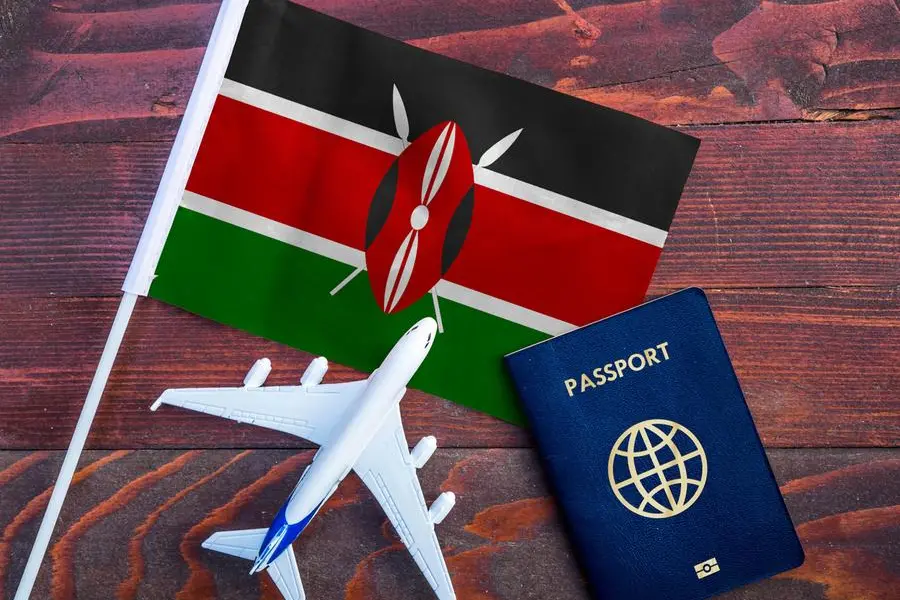Kenya less open to visitors despite visa-free policy – report
3 min read
Despite launching a visa-free policy earlier this year, Kenya’s position in the 2024 Africa Visa Openness Index (AVOI) has sharply dropped, reflecting concerns about accessibility for visitors. The country now ranks 46th out of 54 nations, falling 17 places from its previous position. This drop follows the introduction of the Electronic Travel Authorisation (ETA), which replaced the blanket visa exemption for most African nationals.
In 2023, President William Ruto was hailed for announcing Kenya’s decision to allow all African visitors to enter without requiring a visa. However, critics have pointed out that the system in place now is essentially a form of visa under a different name. The ETA requires travelers from most African countries to apply online for permission to enter Kenya, a process that can take up to three days to complete. While citizens of the East African Community (EAC) bloc are exempt, other travelers must go through this new process, which some argue creates unnecessary bureaucratic hurdles.
The AVOI, which is backed by the African Union and the African Development Bank (AfDB), assesses the visa policies of African countries based on ease of access for travelers. The report suggests that the introduction of the ETA system, which still demands approval before travel, has lowered Kenya’s score in terms of visa openness. The AVOI emphasizes that these measures, despite their intention to facilitate travel, often add extra layers of difficulty for travelers, contradicting the goal of greater regional integration in Africa.
Joy Kategekwa, an AfDB director, noted the paradox of African nations still imposing visa requirements on each other, despite the continent’s aspiration for closer economic and political ties. She commented that although some countries introduced ETAs with good intentions, the system still resembles a traditional visa process, which complicates rather than facilitates movement across the continent.
Some Kenyan business figures were not surprised by the negative impact of the new system. Mohamed Hersi, a hotelier and former chairman of the Kenya Tourism Federation, raised concerns back in January 2024, stating that the ETA process was not truly “visa-free” and could make it harder for tourists to visit Kenya. Gina Din, a prominent Kenyan entrepreneur, echoed similar sentiments, arguing that the ETA added unnecessary bureaucracy and was not an improvement over the previous system.
Under the new policy, travelers from most countries, except those in the EAC, must pay a fee of $30 for the ETA, valid for 90 days. Previously, visitors could pay a one-time $50 visa fee for multiple-entry permits that were valid for several years. Additionally, travelers must provide flight details and proof of hotel bookings, which many feel complicates the process further.
Despite these criticisms, the Kenyan government has justified the introduction of the ETA as a necessary measure for security reasons. A government spokesperson explained that the vetting process helps to ensure that travelers do not pose a risk to the country, particularly given Kenya’s history of attacks by the al-Shabaab militant group from neighboring Somalia.
Interestingly, the introduction of the ETA has not had a significant negative impact on the number of visitors. According to the Kenya Tourism Board, the country welcomed over one million international visitors in the first half of 2024, marking a 21% increase compared to the same period last year. This suggests that the tourism sector remains resilient, despite the added administrative requirements.
Looking at the broader picture in Africa, the AVOI report highlighted countries like Benin, The Gambia, Rwanda, and Seychelles for their high levels of visa openness, where no visas are required for African visitors. On the opposite end of the spectrum, Sudan, Libya, Equatorial Guinea, and Eritrea received the lowest scores for visa accessibility.
While Kenya’s visa policy is a step toward regional integration, the introduction of the ETA, which still requires prior authorization for entry, has not fully achieved the goal of free movement across African borders. As Kenya seeks to improve its position on the AVOI, it will need to consider balancing security concerns with the need for more accessible travel options to stay competitive in the global tourism industry. The debate continues over whether a simpler, more transparent visa policy could further boost Kenya’s appeal to African and international visitors.






